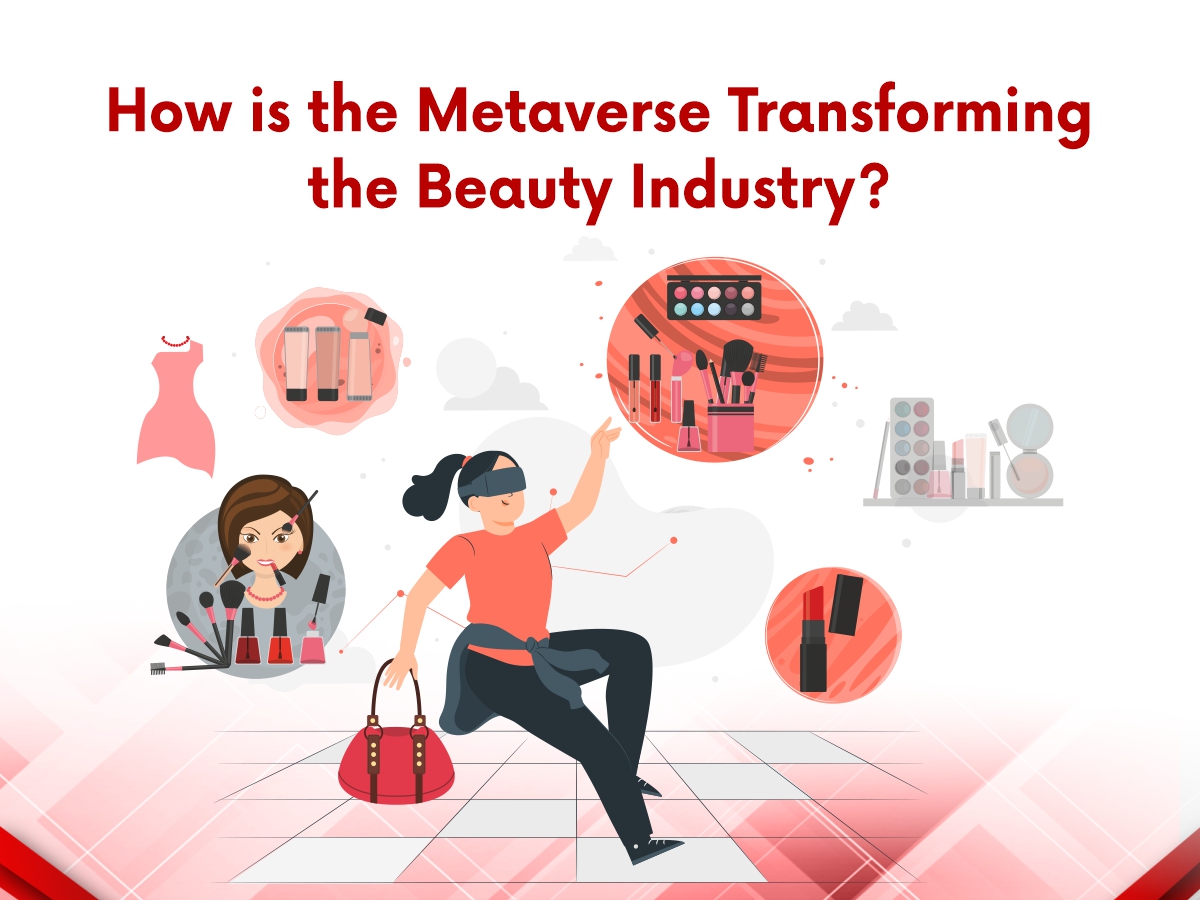
Close


Isn’t it surprising that a sector of the economy like beauty, where the human touch and physical treatments dominate, is being transformed and reinvented into a virtual world where you can’t touch, feel, or smell what is around you?
The distinction between the digital and physical worlds is being blurred by virtual beauty.
The beauty industry regularly updates its goods and services to reflect changing customer spending preferences and lifestyles. The Metaverse and Augmented Reality have significantly changed how people communicate, transact, and conduct business.
The metaverse is a virtual space that allows people to have more immersive interactions. These digital spaces become communal destinations that offer limitless opportunities for new means of interaction, trade, and shared experiences.
Metaverse is a broad and complex term that focuses more on our interactions with digital encounters than it does on a particular technology. It enables brands to open up virtual “portals” for customers to explore, including virtual reality (VR), augmented reality (AR), and non-fungible tokens (NFTs).
The metaverse has emerged as the upcoming platform for beauty firms to virtualize the latest features and vivify our visual identities.
Customers in the metaverse will be able to travel anywhere, at any time, to virtual shops where they can interact with products through a distinctive avatar and take part in a virtual beauty consultation or demo. Today’s beauty innovators and influencers are creating NFTs (non-fungible tokens) and using avatars in virtual communities that support inclusivity to connect a brand’s visual identity to limited edition products.
Long before the term “metaverse” became trendy, a number of beauty companies were already establishing their own kind of metaverse. The introduction of virtual try-on apps by companies like L’Oreal Paris, Clairol, and MAC Cosmetics at the time paved the way for beauty to be treated more seriously in the tech industry. Now, it’s exciting to watch the industry’s leading companies innovate once more for a new form of virtual life, whether that’s by offering brand-love-building games or bringing products inside VR spaces.
The metaverse offers endless opportunities for how people can share information and how businesses might reach more customers. In the metaverse, you can:
Businesses will be able to engage and connect with potential customers on a level that has never been possible before, which is likely to change the face of digital outreach. For beauty firms in the metaverse, this presents an opportunity to establish their brands and foster future growth on the foundations of what is probably already a well-established strong social media presence and the trend of turning consumers into creators.
Now let’s explore what beauty brands are doing in the metaverse:
It’s uncertain where beauty will go next in the metaverse because the options appear endless. Some analysts believe that this virtual environment would pave the way for in-experience purchases, which would eliminate the necessity for stores. Influencer marketing could change if top talent provides followers with “looks” they can access and replicate in milliseconds, possibly with the option of having pertinent things delivered by drone a few hours later.
However, we do know that more and more companies will make investments in the metaverse. Fenty, L’Oreal Paris, and Aveeno are just a few companies that have filed trademarks for use with their virtual products.
Fashion and beauty brands in the upcoming metaverse have a lot of potential, but there is valid concern about what this implies for the growing brands. Making a reputation for oneself in the actual world is challenging enough; expanding into the metaverse at the same time could be a lot to take on.
It’s possible that major brands will enter the metaverse first, with smaller ones following once they’ve established a strong enough name. Imagine it as building a brand first in one nation before expanding it worldwide.
Can the metaverse be successful? As with anything, only time will tell whether the beauty industry, or any industry for that matter, will be successful in the metaverse as it grows in popularity.
Authored by – Guniyal Bagga
Please Subscribe our news letter and get update.
© Copyright 2023 – Wissen Research All Rights Reserved.
Powered by VintageCoders